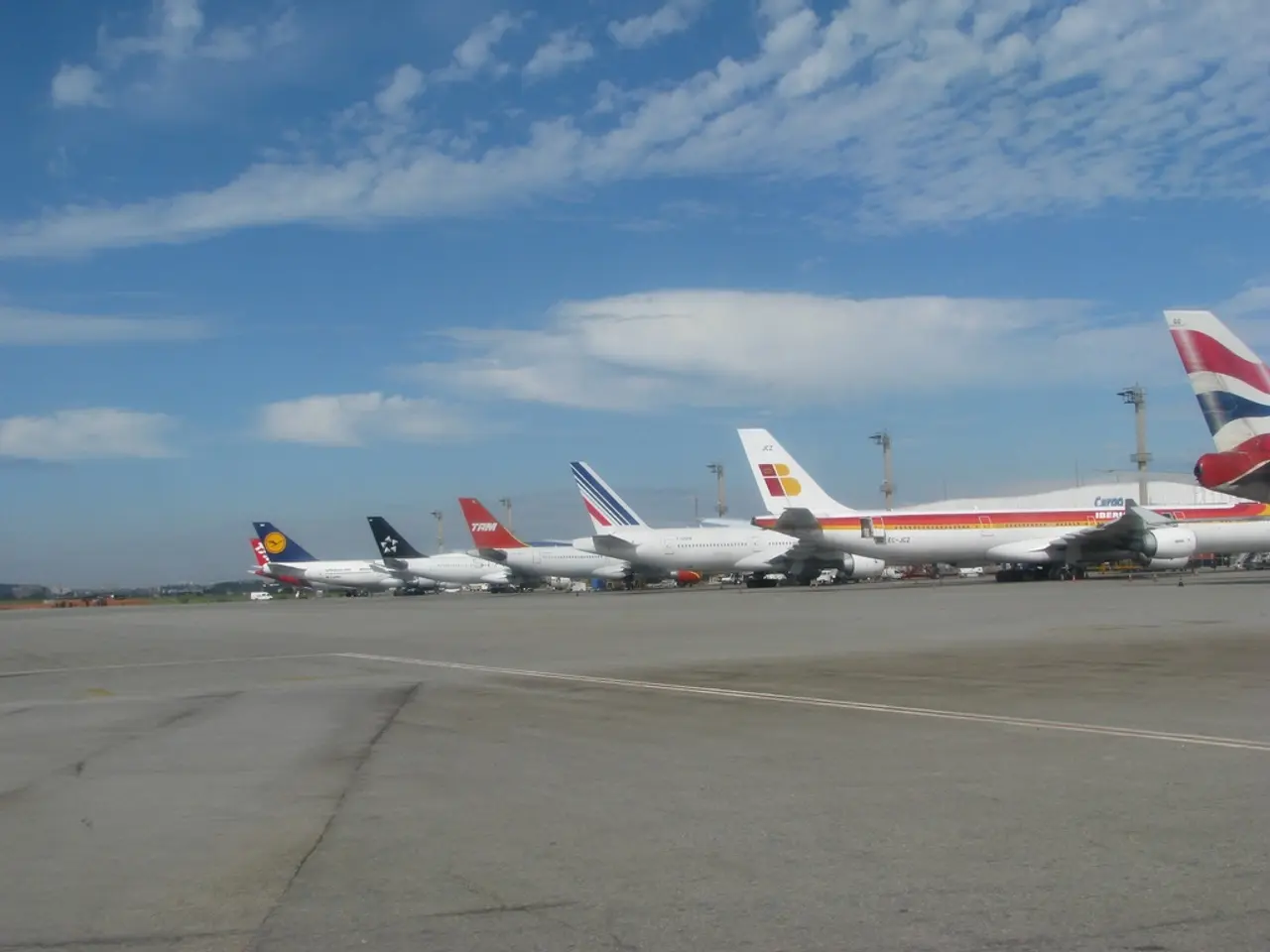Unseen Expenditures When Flying to the UK: Potential Pitfalls to Consider
When planning a trip to Britain, it's essential to be aware of the various fees that can add up unexpectedly across different sectors, such as airlines, booking services, ground transportation, accommodations, and insurance.
In the airline industry, **checked baggage fees** can be substantial, with airlines like Ryanair charging around £20 to £50 or more per bag, depending on the airline and route[1]. **Seat selection fees** and **hand luggage fees** are also common, with prices varying widely[1][3]. Additionally, **name change or booking alteration fees** can range significantly and are often not well-advertised[3].
Booking services may also come with hidden fees. Some airlines charge a small fee for online bookings, which might not be included in the initial ticket price[1]. **Booking cancellation or change fees** can add up quickly, so it's crucial to review booking policies carefully[2].
Ground transportation costs can catch travellers off guard. In London, a **congestion charge** is applied to drivers entering certain areas, typically costing around £11.70 per day[4]. **Parking fees** in city centers can be expensive, with fees often ranging from £5 to £20 per hour[4].
Accommodation fees can also add to the total cost of a trip. **Resort fees** and **additional guest fees** are common, as well as fees for early check-in or late check-out[2].
Travel insurance is crucial for mitigating unexpected expenses during travel, with approximately 30% of travelers encountering medical emergencies while abroad[4]. While not a hidden fee per se, travel insurance is often overlooked until it's needed. It can cover unexpected medical expenses, trip cancellations, and lost luggage[4]. However, it's important to note that **credit card travel insurance limitations** may not cover all necessary aspects, such as medical emergencies[4].
To help manage costs, travellers can opt for areas outside the city center, like zones 2 or 3, for lower lodging expenses[5]. Choosing accommodation with included amenities, such as Wi-Fi and breakfast, can also help reduce additional costs.
It's recommended that travellers budget approximately £200 to £300 for additional fees when visiting Britain, taking into account potential costs for in-flight amenities, ground transportation, accommodation fees, and insurance[6].
For more information on emergency services in the UK, travellers can dial 999 for police, fire, and ambulance services, or 111 for non-emergency medical advice.
[1] https://www.which.co.uk/travel/air-travel/airline-seat-selection-fees/airline-seat-selection-fees-explained/ [2] https://www.which.co.uk/travel/air-travel/hidden-airline-fees/what-are-hidden-airline-fees/ [3] https://www.travelandleisure.com/airlines-airports/airlines-and-airports/airlines-that-charge-for-seat-selection [4] https://www.which.co.uk/travel/car-hire/car-hire-extras/what-are-car-hire-extras/ [5] https://www.visitlondon.com/things-to-do/neighbourhoods/zones-1-2-and-3/zones-1-2-and-3-intro [6] https://www.independent.co.uk/travel/news-and-advice/britain-holidays-hidden-costs-travel-tips-a8689026.html
While budgeting for a trip to Britain, it is essential to anticipate additional costs in the travel sector, such as seat selection fees, hand luggage fees, and checked baggage fees in the airline industry. In the case of London, one should be mindful of the congestion charge and expensive parking fees in city centers.
In the accommodation sector, resort fees and additional guest fees can add to the total trip cost. It is highly recommended to budget around £200 to £300 for such additional expenses, including ground transportation costs, in-flight amenities, and travel insurance.






